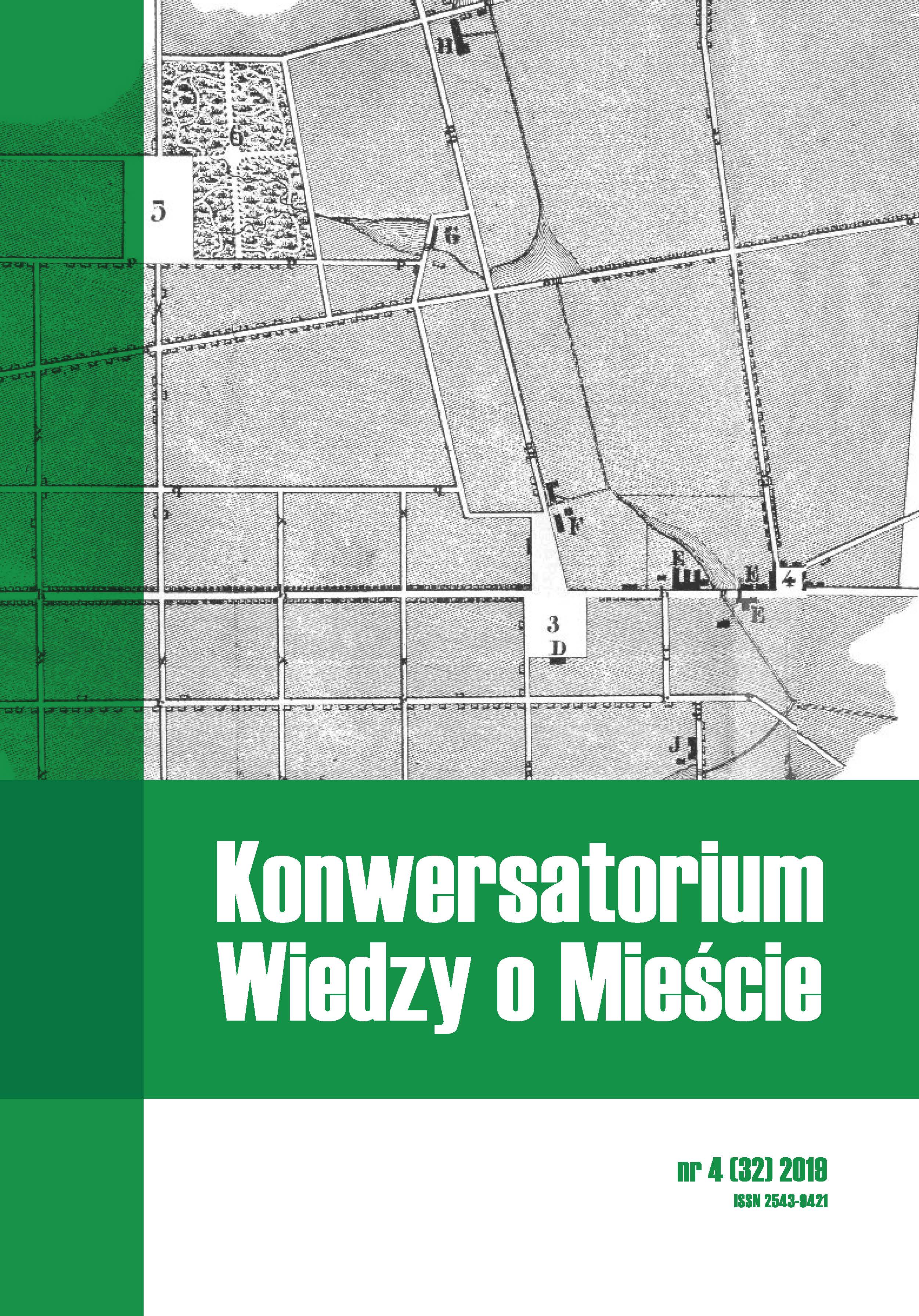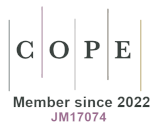Atrakcyjność centrum miasta i centrów dzielnic Krakowa w opinii mieszkańców
DOI:
https://doi.org/10.18778/2543-9421.04.06Słowa kluczowe:
centrum miasta, centrum dzielnicy, dzielnica administracyjna, KrakówAbstrakt
W artykule zaprezentowano badania empiryczne dotyczące oceny atrakcyjności centrum miasta i centrow dzielnic administracyjnych Krakowa, opierając się na opiniach mieszkańcow. Badania potwierdzają powszechne koncepcje hierarchicznego zaopatrywania się w dobra, czyli klasyczną teorię miejsc centralnych. Jak wykazały analizy, mieszkańcy Krakowa zdecydowanie częściej odwiedzają centra dzielnic niż jego centrum, co jest związane z mniejszą odległością centrow dzielnic od miejsc zamieszkania, jak rownież ze zrożnicowanym zagospodarowaniem, dostosowanym do odmiennych potrzeb ludności, realizowanych w obu rodzajach centrow. Stwierdzono zależność między częstszymi odwiedzinami centrum dzielnicy a częstszymi odwiedzinami centrum miasta, co może świadczyć o bardziej mobilnym stylu życia pewnej grupy osob. Respondenci oceniają centrum miasta jako atrakcyjniejsze niż centra dzielnicowe. Zdecydowanie najniższa ocena dotyczyła oferty kulturalnej i rozrywkowej w centrach dzielnic. Jedynie poczucie bezpieczeństwa w centrum miasta uzyskało niższą ocenę niż w centrach dzielnic.
Bibliografia
Brzosko-Sermak, A., Płaziak, M., Trzepacz, P. (2017). Przemiany funkcji handlowych i usługowych centrum dzielnicy mieszkaniowej na przykładzie Krakowa-Nowej Huty. Prace Komisji Geografii Przemysłu Polskiego Towarzystwa Geograficznego, 31 (2), s. 95–110.
Google Scholar
Christaller, W. (1963). Ośrodki centralne w Południowych Niemczech. Przegląd Zagranicznej Literatury Geograficznej, 1, s. 1–72.
Google Scholar
Kiełczewska-Zaleska, M. (1972). Geografia osadnictwa. Warszawa: Państwowe Wydawnictwo Naukowe.
Google Scholar
Losch, A. (1961). Gospodarka przestrzenna. Teoria lokalizacji. Warszawa: Państwowe Wydawnictwo Ekonomiczne.
Google Scholar
Maik, W. (1997). Podstawy geografii miast. Toruń: Uniwersytet Mikołaja Kopernika.
Google Scholar
Maliszowa, B. (1974). Śródmieście. Wybrane zagadnienia planowania. Warszawa: Arkady.
Google Scholar
Mydel, R. (1991). Rozmiary i dzienny rytm ruchu pieszego w Rynku Głównym miasta Krakowa. Folia Geographica, Series Geographica-Oeconomica, XXVII, s. 13–29.
Google Scholar
Nowakowski, M. (1990). Centrum miasta. Teoria, projekty, realizacje. Warszawa: Arkady.
Google Scholar
Płaziak, M. (2014). Przemiany funkcji handlowo-usługowych w mieście postsocjalistycznym na przykładzie Nowej Huty (s. 85–100). W: E. Kaczmarska, P. Raźniak (red.) Społeczno-ekonomiczne i przestrzenne przemiany struktur regionalnych, Krakow: Oficyna Wydawnicza AFM.
Google Scholar
Płaziak, M., Szymańska, A.I. (2017). Regres czy rozwoj lokalnej działalności handlowo-usługowej w najstarszej części Nowej Huty? Przedsiębiorczość – Edukacja, 13, s. 228–243.
Google Scholar
Regulski, J. (1982). Ekonomika miasta. Warszawa: Państwowe Wydawnictwo Ekonomiczne.
Google Scholar
Szymańska, D. (2009). Geografia osadnictwa. Warszawa: Wydawnictwo Naukowe PWN.
Google Scholar
Wallis, A. (1979). Informacja i gwar – o miejskim centrum. Warszawa: Państwowy Instytut Wydawniczy.
Google Scholar
Winiarczyk-Raźniak, A. (2006). Uczestnictwo w kulturze jako przejaw miejskiego stylu życia w regionie miejskim Krakowa (s. 203–213). W: B. Gorz (red.), Urbanizacja i społeczeństwo. Krakow: Wydawnictwo Instytutu Geografii Akademii Pedagogicznej w Krakowie.
Google Scholar
Winiarczyk-Raźniak, A. (2008). Wybrane usługi a jakość życia mieszkańcow w regionie miejskim Krakowa. Prace Monograficzne Uniwersytetu Pedagogicznego, 508.
Google Scholar
Winiarczyk-Raźniak, A., Raźniak, P. (2012). Migracje wewnętrzne ludności w polskich obszarach metropolitalnych u progu XXI wieku. Krakow: Uniwersytet Pedagogiczny.
Google Scholar
Zborowski, A. (2005). Przemiany struktury społeczno-przestrzennej regionu miejskiego w okresie realnego socjalizmu i transformacji ustrojowej (na przykładzie Krakowa). Krakow: Instytut Geografii i Gospodarki Przestrzennej Uniwersytetu Jagiellońskiego.
Google Scholar
Pobrania
Opublikowane
Jak cytować
Numer
Dział
Licencja

Utwór dostępny jest na licencji Creative Commons Uznanie autorstwa – Użycie niekomercyjne – Bez utworów zależnych 4.0 Międzynarodowe.









